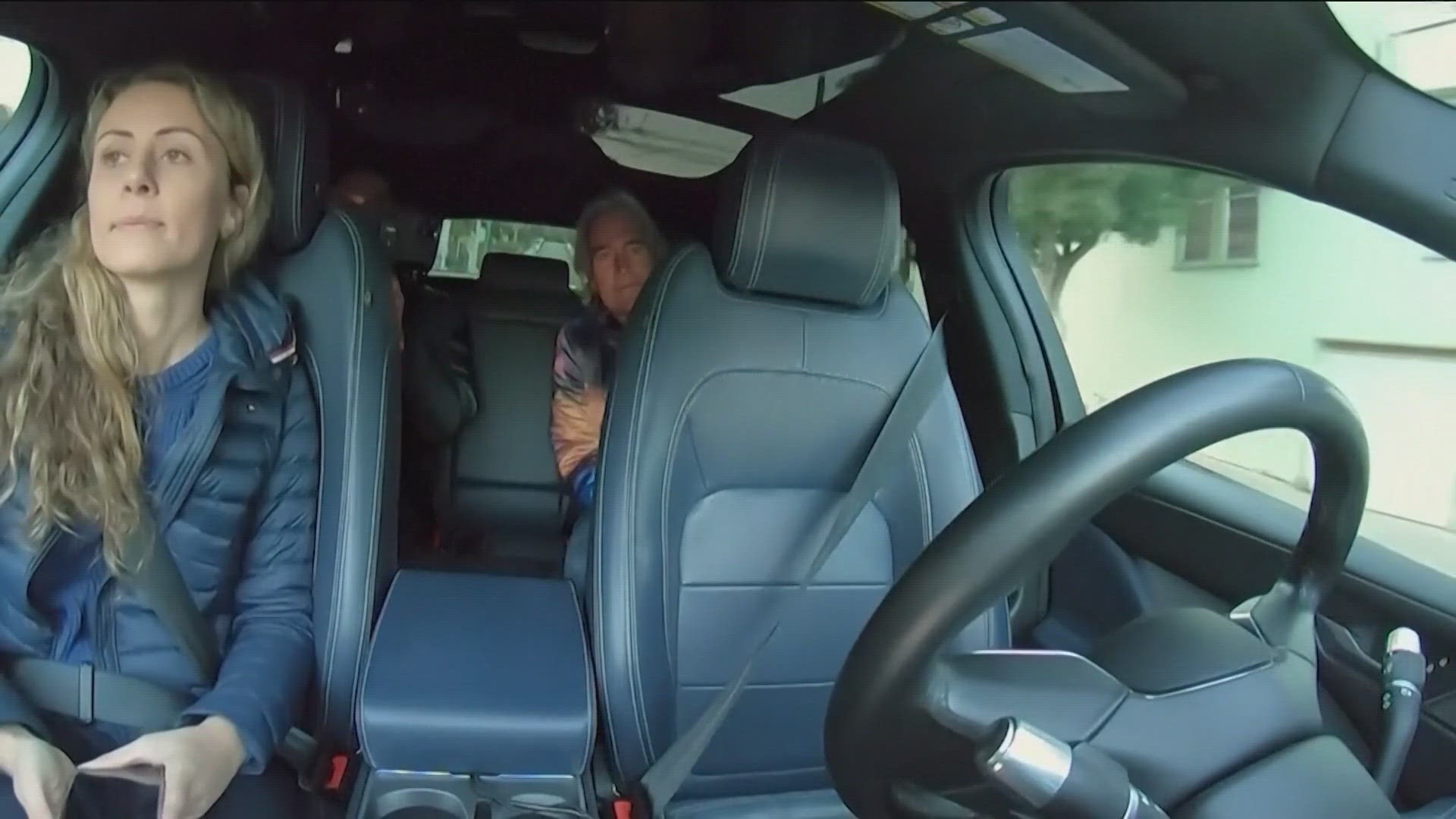SAN DIEGO — Self-driving cars are not here in San Diego yet, but the day when you can call for a driverless rideshare service may not be too far in the future. One company is now laying the ground work, but there's still a long road ahead.
These driverless ride share services or "robotaxis" are already in use in San Francisco, Phoenix and Austin. But here in San Diego, not everyone is ready to jump in.
"I personally wouldn't want to enter into one," said mother Ashley Tima Biwole.
Others disagreed.
"I'm willing to try it out," said Little Italy resident Erin Grisham. "I have my reservations."
"Mixed reactions for sure," added San Diegan Jesse Martin. "With any technology, it's important you figure out the bugs."
One of these robotaxi companies, Cruise, appears to be doing now in San Diego.
According to Axios, Cruise is now collecting data on San Diego streets, using actual humans behind the wheels of its cars as a first step before it could possibly offer its driverless ride-share service at some point down the road. That would also require a permit, which the company does not yet have here in San Diego.
For some potential passengers, this driverless concept is not getting the green light.
"I just feel like it wouldn't be that safe," said April Rivera. "I just feel like when a person is driving the vehicle, you have more control than a computer. You can't just trust it."
Her friends, though, are full speed ahead when it comes to riding a robotaxi.
"Live life on the edge!" said Dolores Mejia.
"I would definitely do it," said Shedell Zurak. "It's probably safer than me driving to be honest with you," she laughed.
Some opponents to this emerging driverless technology have concerns beyond safety.
"Technology is not the way to create middle class jobs," said Sean O'Brien, General President of the International Brotherhood of Teamsters.
Protestors last month spoke out against the human jobs they fear would be taken away by driverless vehicles.
"They don't have any real intelligence," O'Brien added. "They don't have any ability to act in a situation that may be an emergency situation."
Emergency situations similar to what O'Brien referenced have already happened. Earlier this month a woman in San Francisco was run over by a robotaxi. She was left with serious injuries.
Still, as the technology advances, so does the interest in this new way of getting around.
"I think there is no shortage of people willing to try, myself included!" said Martin.
So far here in San Diego, Mercedes-Benz is the only company with a permit to test out its driverless cars without a human present.
There are restrictions though: it can only be done during daylight hours and can not go over 40 miles per hour.
WATCH RELATED: Following California’s lead, EPA proposes national standards to ramp up electric cars

